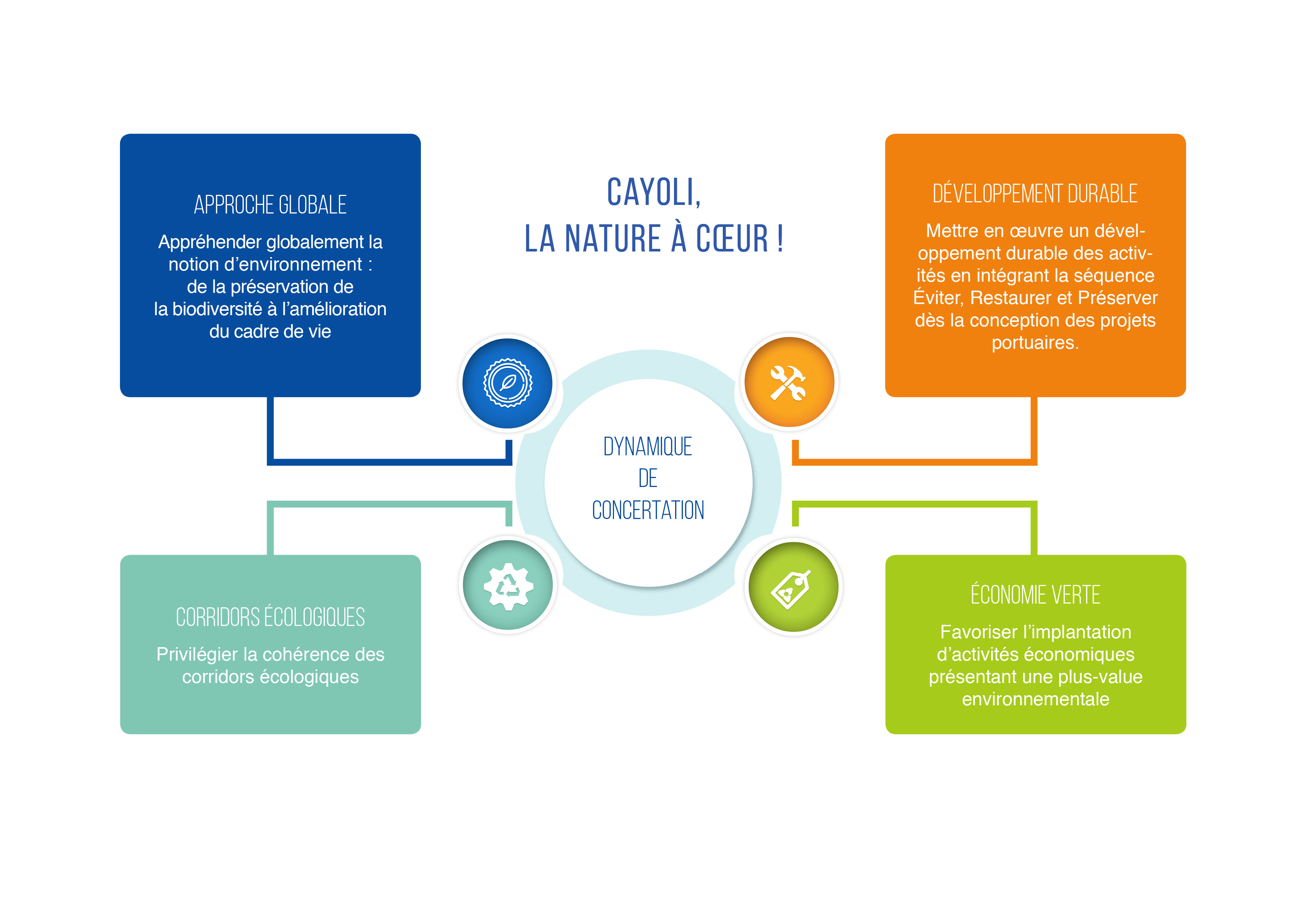
Cáyoli , AN INITIATIVE OF GUADELOUPE CARIBBEAN PORT
Since 2013, Guadeloupe Port Caraïbes has become a Grand Port Maritime. This new status gives it the skills of developer and manager of natural areas in its district. The port has chosen to invest fully and ambitiously these new responsibilities. This willingness is reflected in the creation of Cáyoli. An environmental program with a partnership vocation, Cáyoli’s ambition is to develop and implement concrete and adapted solutions for the restoration of coastal island ecosystems.
CÁYOLI, A 360° ENVIRONMENTAL PROGRAM
The Cáyoli program was initiated in June 2016. Before its implementation, the Environment Department of Guadeloupe Port Caraïbes worked for several years to improve knowledge of the natural areas of the port district, particularly in the context of the impact study for the work of the New Generation Port but also by supporting the actions of environmental associations through technical and financial means.
The first two years of the program were largely dedicated to research and development. The aim is to propose rigorous scientific protocols for the management and active restoration of the natural environments targeted by the program.
Cáyoli is also an ambitious educational program conducted in partnership with the Rectorate of Guadeloupe with the will to provide teachers with tools specific to the Caribbean island context and to encourage vocations to develop locally the skills that will make Guadeloupe a land of excellence in environmental protection and restoration.
THE GOALS OF THE PROGRAM
– Preserving the living environment and biodiversity
– Demonstrate the effectiveness of innovative techniques for the conservation of Caribbean biodiversity and validate action protocols that can be replicated on other sites.
– Encourage the establishment of economic activities with an environmental added value

MANGROVES, SEAGRASS MEADOWS, CORALS: ESSENTIAL ECOSYSTEMS
Human pressures, urban development and the consequences of climate change… In the face of these changes, three interdependent ecosystems, essential to the balance of the territory, are showing significant signs of fragility and degradation, raising questions about their future capacity to provide first-rate ecosystem services for the resilience and development of Guadeloupe:
- Wetlands, which are essential to the balance of coastal areas, are largely filled in and polluted;
- Seagrass meadows threatened by a massive artificialization of the coastline and anthropogenic pollution;
- Corals* impacted jointly by the acidification of the oceans, rising temperatures and insufficient restoration and protection measures
*Coral reefs are remarkable natural environments and are home to a wide variety of fauna and flora. Insufficiently known, they have suffered severe degradation at the global level to the point that it is estimated that currently nearly 80% of them are threatened. They are the object of several specific preservation actions within the CÁYOLI program
DEVELOPMENT PROSPECTS
With only 2 years of hindsight, the program is in its preparatory phase. Protocols exist and need to be tested and reinforced. The restoration and preservation needs on the scale of Guadeloupe and the Caribbean need to be more ambitious.
The will of Guadeloupe Port Caraïbes today is to make the Cáyoli program a vehicle for collective solutions to these challenges. To do this, it is actively seeking funding and wishes to surround itself with partners who share the ambition to protect natural areas and to promote Guadeloupe in the Caribbean. To make rhyme economic development and preservation of the environment is a necessity and the port intends to do its part.

